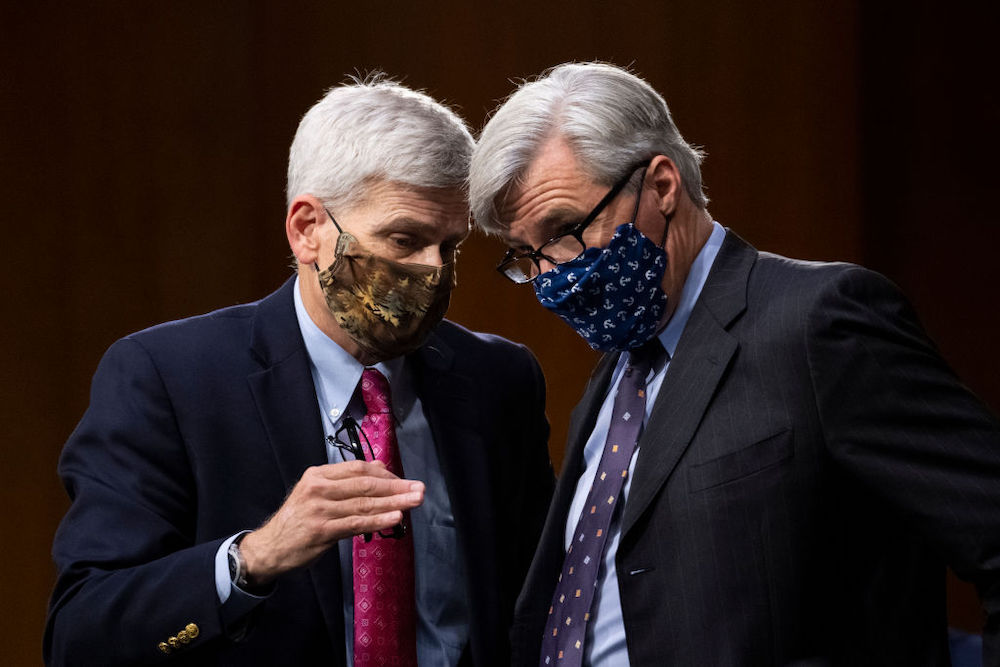- Major oil and gas companies have yet to disclose how they plan to spend $2 billion the industry received from the Coronavirus Aid, Relief and Economic Security Act.
- Sen. Sheldon Whitehouse has asked firms to disclose their plans amid concerns that funds will be used to increase pay for top executives and other non-COVID-19 related matters.
- SEC filings show some companies are using the CARES Act benefits to cover losses from earlier years.
Crickets.
That’s the sound of the dearth of oil and gas companies’ responses to U.S. Sen. Sheldon Whitehouse (D-Rhode Island) following his request that they account for how they aim to spend the $2 billion the industry reaped from the Coronavirus Aid, Relief, and Economic Security (CARES) Act.
Sen. Whitehouse sent a letter in late June asking companies such as Marathon Petroleum Corp. and ExxonMobil, the world’s largest publicly traded oil company, for clarification on how they have benefitted from the CARES Act, originally aimed at alleviating the economic damage from COVID-19 suffered by private citizens, healthcare providers, small businesses and local authorities.
“When Congress passed [the CARES Act] in March, our intent was to respond to the immediate healthcare and economic needs of Americans,” Whitehouse says in the letter. “It was not to provide big corporations with large windfalls from tax loopholes, giveaways that will ultimately be paid for by American taxpayers.”
The lawmaker asked whether the companies have avoided firing personnel, hired workers, increased the pay for the rank and file, are planning other pandemic related measures or whether energy companies anticipate receiving more benefits from the law.
Sen. Whitehouse says no companies have responded to his query so far but their filings with the Securities and Exchange Commission show some aim to apply the benefits to cover losses from earlier years.
The oil and gas sector along with the rest of the global economy has been hammered by the COVID-19-induced lockdowns that have dented consumer appetite for energy. Prior turbulence in the energy market pushed down oil prices by 25% in March, their lowest levels since 2016.
Even before the pandemic, investors have been pressuring companies, especially U.S. shale oil producers, to show discipline in their production and generate more profit and less debt.
In a bid to balance the market and remove excess crude weighing on prices, the U.S. will have contributed to the largest production cut, surpassing the cuts by Saudi Arabia by the end of 2020, according to the International Energy Agency.
In a tough climate, Marathon Petroleum lobbied for new tax provisions in the CARES Act and collected a $411 million benefit that may be applied to losses unrelated to the pandemic, according to its latest SEC filing. Jamal Kheiry, a communications manager at Marathon, says the company’s actions are legal.
“The CARES Act gives companies and individuals, regardless of industry, the ability to carry back the 2020 net operating loss to offset taxes already paid in prior years,“ Kheiry wrote in an email interview with Karma. “This practice was the law for most of the past 60 years, until it was done away with in 2017. The provision was temporarily re-instated in the CARES Act in order to increase cash flow and soften the economic effects of shutdowns across the country.”
The American Petroleum Institute, an umbrella organization that represents over 600 energy companies, says the industry is not getting special treatment, as companies in other sectors, such as aviation, received assistance from the government.
“From the start, API has consistently said that we are not seeking industry-specific financial assistance or legislative action as a result of the market disruption caused by the pandemic,” Scott Lauermann, spokesman for API, told Karma.
Critics say big corporations have already received tax benefits from the 2017 overhaul, which lowered the corporate tax rate to 21% from 35%. Critics are worried that the new influx of funds will be used to increase pay for top executives and other non-COVID related matters.
“Hedge fund managers and wealthy corporations can take care of themselves, “ Sen. Whitehouse told Karma in an email interview. “We’ll be fighting to support working families, front-line workers, small businesses, local hospitals, and countless others facing real financial hardship.”
Photo by Caroline Brehman/Getty Images






















